Written by Tim Bowman
I decided to experiment with something a little different in my Texas history class here at West Texas A&M University (WTAMU) this past fall semester. Typically, for a Core-curriculum class, I would assign two books that the students would read in common outside of our primary source readings and central class text. For example, Skip Hollandsworth’s The Midnight Assassin, about a serial killer in 1880s Austin, and Timothy Egan’s The Worst Hard Time on the Dust Bowl, both play well with undergraduate audiences. This semester, though, I dispensed with the books in favor of documentaries that we would watch as a group, discuss, and then write reflection pieces over. I was extremely pleased to find a digital copy of a recent documentary on a 1918 massacre perpetrated by Texas Rangers in the little town of Porvenir, down in the Big Bend region, which I showed my class. What follows is a short summary of that experience.
I should note here that the Porvenir massacre—or perhaps more broadly, Texas Ranger violence during the early twentieth century—has received a lot of attention in scholarly circles in recent years. Historians such as Monica Muñoz Martínez, Ben Johnson, and Richard Ribb have written extensively on the subject. Additionally, the team of historians involved with Refusing to Forget, a public history project, have worked hard to bring these histories to the public in recent years. Still, as evidenced by most of my students’ reactions to the film on Porvenir, there is much work left to be done.
The massacre itself was a horrifying event. Early in the morning on January 28, 1918, a posse of Texas Rangers and local ranchers supported by members of the U.S. Cavalry rode into the village of Porvenir, in rural Presidio County. The State had dispatched the Rangers into the area in response to a raid on the nearby Brite Ranch the previous Christmas Day, during which some Mexican revolutionaries crossed the nearby border and killed three people. In response, the posse of law enforcement officials separated fifteen men and boys from the rest of the villagers in Porvenir early that morning, took them to a nearby hill and executed them all in cold blood. None of them had any connections to the Brite Ranch raid. The remaining villagers fled, mostly to Mexico, and the US Army burned the now-uninhabited village to the ground in the coming days, wiping it off the map as completely as the assassins had snuffed out the lives of 15 innocent men and boys.
The 55-minute documentary that the students watched—titled simply, “Porvenir, Texas”—not only examines the horrific event itself, but it also explores how people grappled with its aftermath. One of the film’s most compelling portions is its chronicling of how two of the village’s inhabitants—an Anglo schoolteacher named Harry Warren and a 13 year-old boy named Juan Flores—spent the rest of their lives grappling with such an unimaginable tragedy. The film spends a considerable amount of time on Flores in particular during his later years, showing how he only opened up about the mass murder to his family during his declining years as an old man.
I asked my students to write up a short response to the film. I posed two simple questions to the group: did learning about the Porvenir massacre surprise you, and, why do you think the massacre was virtually ignored by people for so long?
Perhaps naturally, students responded in a variety of ways. Regarding the first question, one student reported that while he wasn’t exactly shocked by the violence, “it was shocking to learn that the Texas Rangers, usually seen as Old West heroes, were part of such a dark event. It made me rethink the common approach to narrating history, emphasizing the good and downplaying the bad.” Another student agreed, saying that “for me this was very surprising because it seems as though the Texas Rangers initiated the massacre without being provoked against any reason or morals.” This same student continued, saying that “it’s almost like they were releasing their anger and trying to cause fear by simply taking it out on innocent bystanders of a small farming community.” Another student took a more nuanced approach, largely blaming the massacre on the problem of “Texas Rangers being hired without proper training/background checks,” along with the lack of any discernible authority figure keeping them in check.
I could not have been more satisfied with these responses. Frankly, getting students to think with this level of historical complexity would likely have been more difficult had they instead been asked to read a long, more complicated written narrative.
Regarding the second question—why the massacre has been overlooked—at least one student chalked it up to one simple explanation:
The reason this massacre has been largely ignored for so long ties back to racism. Mexican Americans have often been looked down on, and events like the Porvenir massacre don’t receive the same attention as similar events involving Anglo victims. The Texas Rangers have historically been portrayed as heroes, which makes it easy to overlook the violence they inflicted on Mexican communities.
Another student argued that the massacre was ignored for so long because it didn’t fit with American values, saying that the “state’s reputation would suffer if they confessed to mass murder against residents.” The fact that the victims weren’t white was, according to this student, another contributing factor as to why the massacre was swept under the rug. Finally, a few other students pointed out that the massacre was forgotten not just because the victims were from an underprivileged community, but because Porvenir was in a rural area where media coverage was harder to come by.
Interestingly, only one of my students reported being unsurprised by the massacre, though he was still as equally condemnatory of the Rangers and the State’s actions during and after the shooting:
I can’t say that I was surprised when I learned about this event. Porvenir is just one of many cases in which the Texas Rangers used their authority for discrimination. The general sentiment towards Mexicans was neutral or negative, meaning it wouldn’t take much to convince the average Texans, much less the Rangers, that they were guilty. I’m not even really surprised that the military was involved in shooting escapees. The most recent experience with Mexicans for most Americans was the US-Mexico War and the current raiding bands. With both of these negative experiences, these factors and the ranchers’ testimony wouldn’t give Porvenir a very good reputation. I can’t even say I’m surprised by the number of innocents killed, mind you the Rangers were comprised of criminals.
Clearly, while many students, like most of the rest of the public, remain uninformed on atrocities committed against Mexicans during the early twentieth century, some of them have already been exposed to these problems, or can at least ably contextualize them within the better-known endemic problems of racial violence in U.S. history.
It seems obvious to me that the messages of scholars who study and publicize anti-Mexican violence are coming across clearly to people who are paying attention: the Rangers’ heroic image is a myth; U.S. national history is generally narrated in ways that blot out its imperfections; history’s “good guys” didn’t have to be provoked to do horrible things; and finally, modern professional processes for hiring public officials are perhaps a good thing. In short, my experience showing students the film left a lasting impression on me, too—people can be reached, people can change, and history, when done properly, can make a difference in how people think about the world. Nothing matters more, in 2024, than people learning to critically analyze information, and to question what might otherwise be blindly taken as received wisdom.

Tim Bowman is professor and head of the Department of History at West Texas A&M University in Canyon, Texas. He is the author of two books–Blood Oranges: Agriculture and Colonialism in the South Texas Borderlands (Texas A&M, 2016), and You Will Never be One of Us: A Teacher, a Court Case, and the Rural Roots of Radical Conservatism (Oklahoma, 2022)–along with several articles and essays. He is currently working on a book-length study of the farmworkers movement in the Mexico-Texas borderlands during the 1960s, 70s and 80s.


